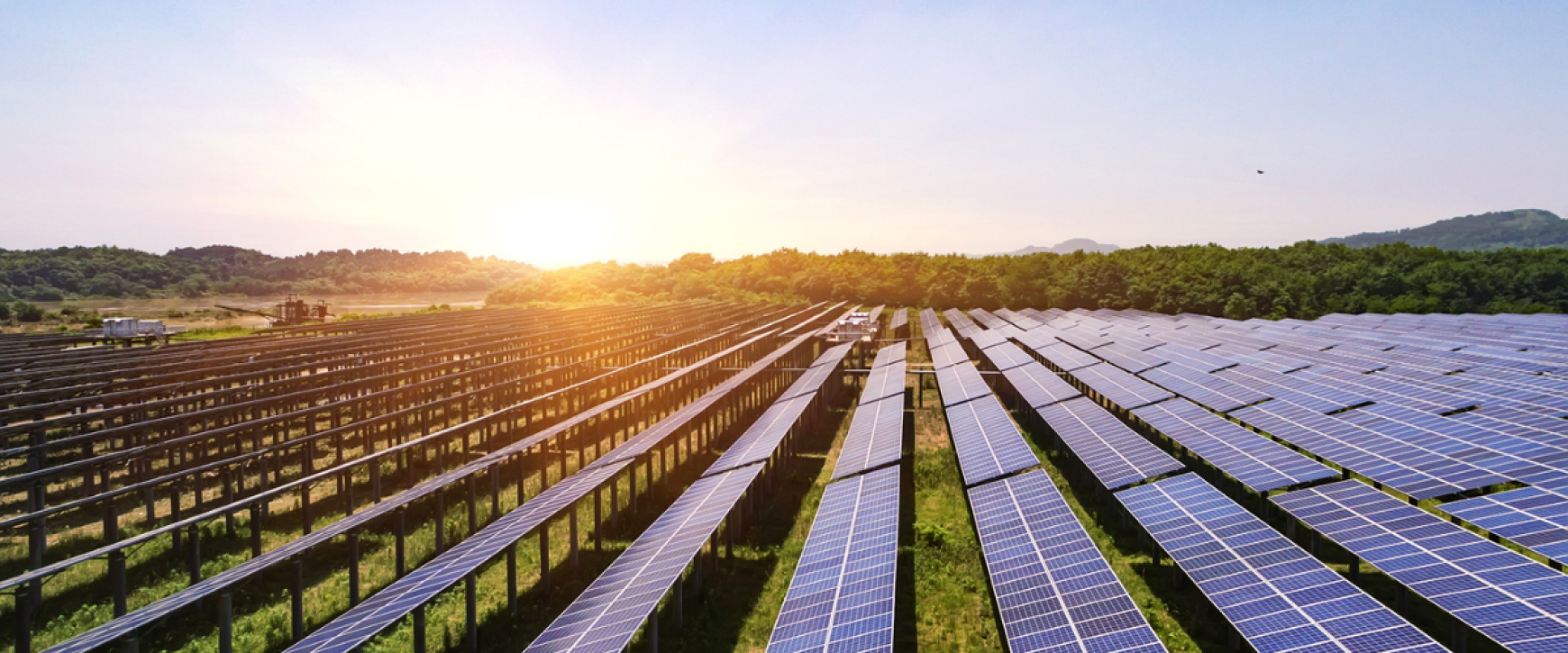In an age where sustainability and renewable energy are paramount, solar farms have become a compelling investment option for businesses aiming to contribute to a cleaner, greener world. These expansive arrays of solar panels offer numerous advantages, while battery storage systems address the intermittent nature of solar energy, ensuring reliable power supply.
But how do you navigate the world of solar farm development, and how can NFU Energy assist you in this endeavour? Join us as we explore the intricacies of solar farm opportunities, from selecting the right land to negotiating leases and rental agreements. We'll also delve into the pivotal role solar farms play in energy generation and their positive environmental impact. By the end of this blog, you'll have a practical understanding of solar farm opportunities and how NFU Energy can guide your path to sustainable energy generation.
Finding Suitable Land for Solar Farm Development
The successful establishment of a solar farm relies on securing suitable land. Factors such as solar irradiation levels, topography, proximity to electrical infrastructure, and land availability need to be carefully considered.
Working closely with land developers and local authorities is essential during the site selection process. Engaging in research and analysis, including the use of Geographic Information System (GIS) data, can identify potential sites that meet the necessary criteria.
Land Developer Approach for Solar Farm Projects
Once potential sites have been identified, developers may approach landowners within the region to determine interest in the project. These companies often send you direct mail to your letterbox or contact you via email. They may ask you to sign an ‘exclusivity agreement’, a document which prohibits external input from other developers or consultants, which should only be signed when fully ready to commit to the project.
It is important to be cautious when engaging with developers as you will likely be tied into a 40-year lease agreement, so you must trust the company you are working with.
Negotiating Leases and Rental Agreements for Solar Farms
When responding to land developers, it is important to be well-prepared for lease and rental agreement negotiations. Understanding the land market and current leasing rates for solar farms is crucial to ensure fair and mutually beneficial terms. Employing legal expertise to draft thorough contracts that cover aspects such as lease duration, rental rates, and maintenance responsibilities is advisable.
Negotiating lease agreements can involve considerations such as rental price per acre, escalation clauses, and potential revenue sharing models. It is important to approach negotiations with a win-win mindset, ensuring that both parties benefit from the solar farm project.
The Role of Solar Farms in Energy Generation and the Environment
Solar farms have a positive impact on local environments. They offer opportunities for the restoration of degraded lands, promote biodiversity conservation, and reduce the need for land conversion for other purposes.
Contact us by filling out this questionnaire to learn more about solar farm opportunities and how you can be a part of this renewable energy movement.


